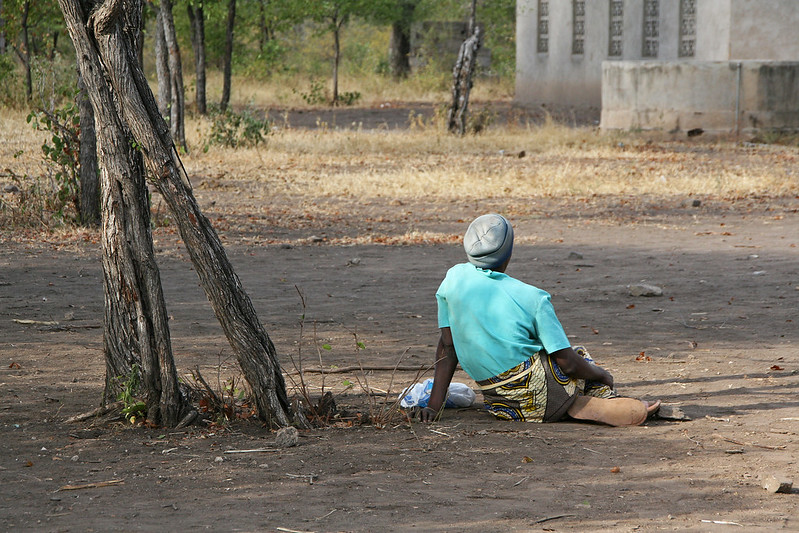Elderly Poverty in Zimbabwe
 In commemoration of the U.N. International Day of Older Persons (IDOP) in 2014, a gathering of elderly individuals convened at the African Unity Square in Zimbabwe, sharing constant accounts of their struggles. They recounted the hurdles encountered in accessing health care services, the instability of their livelihoods, the inadequacies of social security support and the injustices faced, particularly regarding the rights of older women to inheritance. Ten years later, the challenges are still present. In the latest report on the level of poverty in older age in Zimbabwe, the elderly poverty rate stood at 80%, as of 2021.
In commemoration of the U.N. International Day of Older Persons (IDOP) in 2014, a gathering of elderly individuals convened at the African Unity Square in Zimbabwe, sharing constant accounts of their struggles. They recounted the hurdles encountered in accessing health care services, the instability of their livelihoods, the inadequacies of social security support and the injustices faced, particularly regarding the rights of older women to inheritance. Ten years later, the challenges are still present. In the latest report on the level of poverty in older age in Zimbabwe, the elderly poverty rate stood at 80%, as of 2021.
The absence of an insurance plan is among the existing reasons for old age poverty, particularly affecting elderly women in Zimbabwe. Despite a 9.1% unemployment rate, this factor deprives elderly women, this factor significantly contributes to the deprivation of elderly women, compelling them to care for children and adults in their households.
Social Insurance Schemes
In 1989, Zimbabwe established the National Social Security Authority (NSSA), which now manages the Zimbabwean social insurance programs. This program has begun issuing pensions aligned “with the foreign exchange auction rate every month.” This was evident in the pension payout during the second quarter of 2022, as the minimum pension given was equivalent to $70.
Although Zimbabwe has experienced a positive reform in its social insurance programs, it is notable that the program is only applicable to the formal sector. This is particularly ironic considering Zimbabwe is widely recognized for having one of the largest informal economies globally. Informal employment in Zimbabwe accounts for approximately 75% of its total employment, according to the World Bank report.
Harmonized Social Cash Transfer (HSCT)
The HSCT is a social protection program that focuses on households struggling with labour and food poverty. According to the World Bank, it is “an unconditional cash transfer,” the amount of which is determined by the size of the family. Elderly people benefit from this program, as the majority of them do not have a job due to their age or health.
However, despite the presence of this program, the elderly people continue to endure the consequences of the country’s socio-economic state. Established in 2011, this program has only managed to reach about 75,677 households in 26 districts out of the total 65 districts in Zimbabwe, the World Bank reports. This illustrates the low coverage rate of the program, primarily due to inadequate funding from the national budget.
Assisted Medical Treatment Orders (AMTO)
According to the World Bank, the AMTO program aims to enhance health care access for the poor and vulnerable by facilitating direct payment of medical bills to public and mission hospitals. In this program, beneficiaries apply directly to the program and are assessed on a case-by-case basis.
Although in the first quarter of 2022 about 9,540 beneficiaries benefited from AMTO, with 29 people receiving specialized treatment, the eligibility criteria for AMTO is vague, the World Bank reports.
Humanitarian Assistance Programs in Zimbabwe
Aside from the government-implemented program, the U.N. and other NGOs also have several humanitarian assistance initiatives. Among these programs is Lean Season Assistance (LSA), which aims to address food insecurity among vulnerable households affected by natural disasters, economic crises and the COVID-19 pandemic, according to the World Bank. By the end of the 2020/2021 season, approximately 1.5 million food-insecure households had received assistance, including both unconditional in-kind food and cash transfers.
UNICEF supports another humanitarian assistance program, the Emergency Social Cash Transfer (ESCT), which shares a similar mission with HSCT. Introduced in 2020, the program has reached over 113,500 people in 25,000 households, including older individuals.
Despite the positive effects of these programs on poverty, the World Bank highlights challenges such as low coverage, inadequate benefits and inefficient targeting hindered the impact of poverty reduction in Zimbabwe.
– Teniola Yusuf
Teniola is based in Norwich, UK and focuses on Good News for The Borgen Project.
Photo: Flickr
